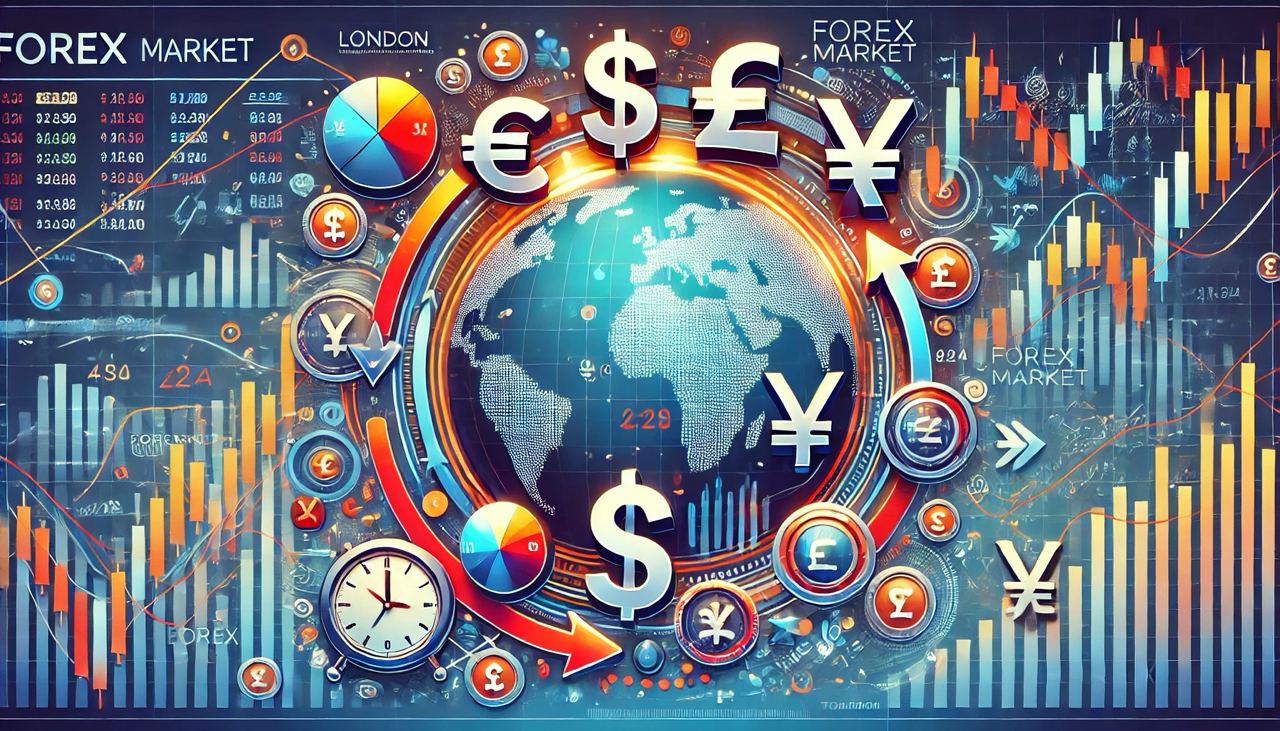Learn Trading for Free and Without Registration
An Online Glossary to Study Trading Independently
What is FOREX?
What is Forex: A Detailed Educational Overview

What is Forex: A Detailed Educational Overview
Forex (Foreign Exchange) is a global decentralized platform for currency exchange. Its name derives from the combination of the words foreign (international) and exchange (trade). Forex is the largest financial market in the world, surpassing even stock exchanges in trading volume. The average daily turnover of the Forex market is approximately $7.5 trillion (as of 2022).
Let’s delve into what Forex is, how it emerged, and why its development has played a key role in shaping the modern global economy.
The Essence of Forex
Forex is the marketplace where currencies are exchanged at current market rates. Unlike centralized exchanges such as NASDAQ or LSE, Forex is decentralized. This means trading occurs through a network of banks, brokers, and other participants.
Example:
- A tourist from Europe travels to the U.S. and exchanges euros (EUR) for U.S. dollars (USD).
- A Japanese company imports goods from Germany and pays in euros, converting yen (JPY) to EUR.
These transactions form the foundation of Forex, where every currency is valued relative to another.
History of Forex
The Bretton Woods Agreement (1944)
Before the 1970s, countries pegged their currencies to gold. After World War II, the Bretton Woods System of fixed exchange rates was established, with the U.S. dollar as the main reserve currency linked to gold.
The Collapse of the Bretton Woods System (1971)
In 1971, the U.S. ended the dollar's convertibility into gold, leading to a system of floating exchange rates. This marked the beginning of the modern Forex market.
The Evolution of Forex
- 1973: Currencies began trading freely on open markets.
- 1980s: Advances in computing and telecommunications simplified market access.
- 1990s: The Internet made Forex accessible to retail traders, not just banks and corporations.
- 2000s: The rise of online brokers and trading platforms like MetaTrader revolutionized the market entirely.
Evolution of Forex Access for Retail Investors
Initially, Forex was exclusively available to central banks, commercial banks, and large financial institutions due to technological limitations and high entry costs.
Key Milestones in Accessibility:
-
1990s:
- Internet technology introduced the first online brokers, enabling retail investors to trade.
- Entry barriers dropped with lower deposit requirements and the availability of leverage.
-
2000s:
- Trading platforms (e.g., MetaTrader 4) simplified the market for beginners.
- Educational resources, demo accounts, and analytical tools became widely available.
-
2010s and Beyond:
- Mobile apps made Forex trading even more accessible.
- Algorithmic trading (bots) automated processes.
- Social trading platforms like eToro allowed traders to copy strategies.
Why Did Forex Become So Popular?
-
High Liquidity
Forex is the most liquid market globally, allowing trades to be executed quickly and with minimal cost. -
24/5 Trading
Forex operates around the clock five days a week, covering all global time zones. -
Accessibility for Retail Investors
Low deposit requirements and leverage made Forex appealing even to beginners. -
Wide Range of Instruments
Forex offers trading on major currency pairs (EUR/USD, GBP/USD, USD/JPY) and exotic pairs, providing flexibility for different strategies. -
Impact of Global Events
Forex is closely tied to economic and political developments. Changes in interest rates, GDP data, inflation, or even elections can influence currency values.
Who Participates in Forex?
- Central Banks
They regulate monetary policy and influence national currency rates. - Commercial Banks
The most active participants, conducting millions of transactions daily. - Investment Funds
Use Forex to diversify portfolios. - Corporations
Buy and sell currency for international trade. - Retail Traders
Profit from currency fluctuations using online platforms.
Main Forex Tools
-
Leverage
Increases purchasing power, enabling traders to open larger positions with smaller capital. -
Demo Accounts
Teach trading basics without financial risks. -
Trading Platforms
Provide market analysis tools, enable trade execution, and manage risk.
Conclusion: Forex Is a Crucial Skill in Today’s World
Forex is not just a marketplace for currency exchange but a global system influencing international trade and economics. Since its inception, Forex has evolved from a closed network for banks to an accessible platform for millions of traders.
Understanding the history, mechanisms, and dynamics of Forex enables traders to better grasp currency movements, predict market trends, and adapt to global changes effectively.
Recommendation from Ronin Academy: To succeed in Forex, study the fundamentals of economics, understand central bank policies, and leverage modern analytical tools. Courses and practical trading will accelerate your mastery of this vast market.


